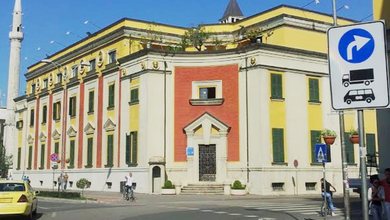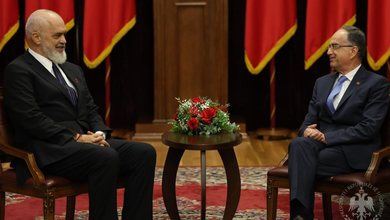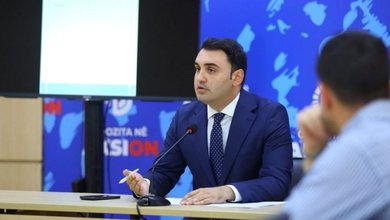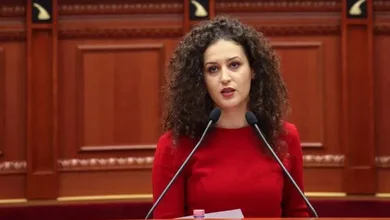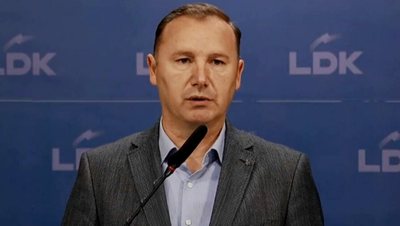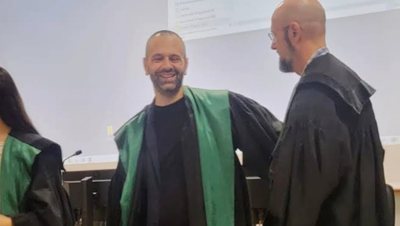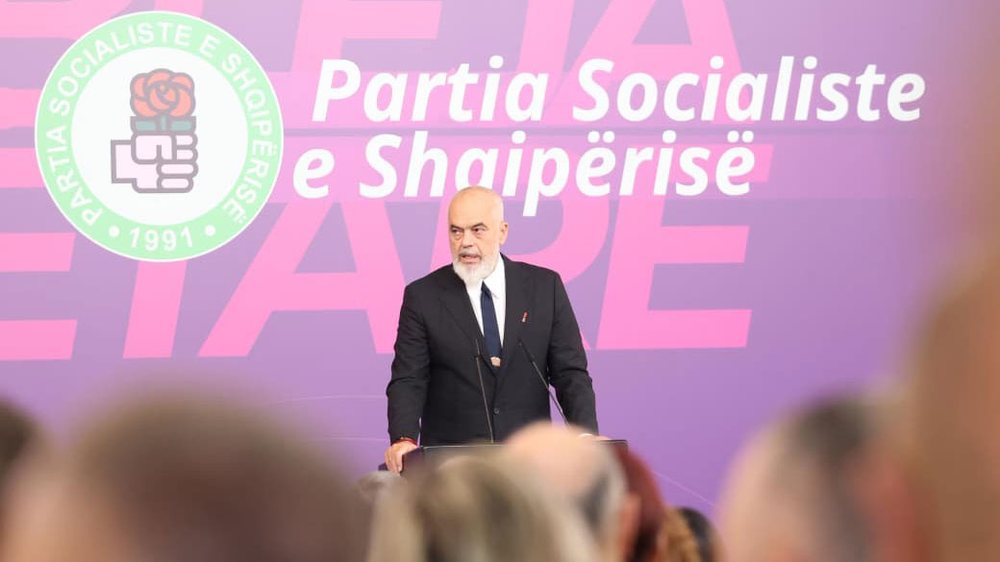
In his fourth term in office, after removing his left-wing ally, Ilir Meta, from the coalition government, Prime Minister Edi Rama has begun targeting figures from the opposition camp to bring them closer to him.
At the first meeting of the new government, he appointed Deputy Minister of Interior Silva Caka, a former Freedom Party MP and an opposition voice, especially active in the protests against the mayor of Tirana, Erjon Veliaj, who was dismissed from office at the same meeting.
Earlier this summer, Rama drew attention by appointing Genc Deromema, a leader of the local branch of the Democratic Party, as cadastral director in Vlora, justifying himself by saying that the socialist camp had run out of human resources.
He also brought into his party's ranks and included in the list of candidates for MPs Endrit Brahimllari, also a former central figure in the Freedom Party, which is led by Ilir Meta, a former socialist and Rama ally, who is currently in prison on corruption charges.
Caka's appointment sparked a reaction from within her party, but also in the public, where such political oversteps are perceived as political betrayal but also as a tactic by the government to harm the opposition.
But such movements make more noise than they have a direct impact on the opposition, says Dashamir Shehi, a veteran former member of the Albanian parliament and chairman of the Movement for National Development, which failed to be represented in the Assembly in the last elections.
"The goal is malicious, to create the perception that their people are coming with us, that it's not that these characters are some great professionals that the state needs," Shehi told BIRN.
"Rama is practically making noise, causing a diversion in public, and keeping the media busy with this kind of smoke for a while," he added.
On the other hand, Shehi suggests that these moves by some opposition figures for a job in the government camp do not harm the opposition in themselves, also due to the small weight that the characters have.
"It's not this that disrupts the opposition's work, agreements between a few small employees with the big boss in power, it's the political agreements made between two parties that have other interests inside, such as the one for the Electoral Code and the Constitution in 2008 that disrupt it," argues Shehi.
For Zef Preçi, director of the Institute for Economic Studies, these actions are also related to the loss or fading of an ideological difference between political camps, or between the DP and the SP, which have been in power for 35 years, and this has changed the citizen's perception of politics for the worse.
"This situation favors party clientelism, political patronage, the use of state means and resources to secure re-election, etc. Perhaps sophisticated propaganda, especially during the last decade, has encouraged this behavior of citizens, leading to absurd situations where elections are 'won' even without having a program at all, or when the essence of the campaign becomes the destruction of the opponent's reputation without saying what it offers to the citizens," Preçi told BIRN.
The lack of a clear perception of the differences between political groups, according to Preçi, has also led to a kind of ease in the transition of political figures from one side to the other to higher political levels, such as in the ranks of members of Parliament, thus alienating the will of the voters.
The culture of buying and selling in Albanian politics
Dashamir Shehi does not see Rama's behavior in courting individuals from the opposition camp as a new phenomenon, but as a continuation of an early phenomenon in Albanian politics that in itself shows the lack of political morality or ideological identity of parties in the Albanian spectrum.
He cites as an example the transition of a left-wing party that emerged from the Socialist Movement for Integration, today the Freedom Party, from a coalition with Rama to a coalition with Berisha and vice versa.
"The opposition should not complain today that it is taking away some small officials, after Berisha has practically taken away from the SP a prime minister, Ilir Meta, or a central figure of the party, Kastriot Islam, etc.," says Shehi.
According to him, "this is a permanent Albanian story, a shameful feature of politics that the chronicle of at least the last 20 years offers us."
Zef Preçi thinks similarly, according to whom Edi Rama played a key role in creating this phenomenon, when upon becoming the head of the Socialist Party he brought with him the philosophy "beyond left and right".
But, he adds, "the phenomenon of buying and selling individuals with political 'backgrounds' was legitimized by the Parliament when the DP decided to surrender its mandates and boycott the local elections, a phenomenon that has already gained 'citizenship' under Mr. Rama's ambition to use these individuals as a demonstration of the broad popular support he enjoys, although the time when the leader received more votes than the party has been left behind for decades."
According to Preçi, when this happens with the mandate of an MP, there should be constitutional consequences.
“I think that in a functional democracy, while respecting the legitimate right of the individual to change political direction by taking office in the next government, voters should also be free to enjoy their right to hold such representatives accountable, including the right to revoke their mandates of representation,” he argues. /BIRN/



